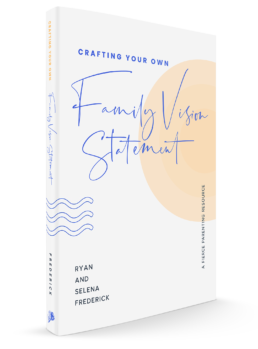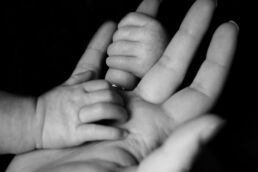I’m homeschooling my oldest son this year— he’s seven— and I’d like to just confess here publicly:
We aren’t loving it.
We are doing the math and the reading out loud and a million baking soda volcanos and lots of hikes. And every time I check in with him to say, “Hey, it’s not so bad, is it?” he says, “It’s okay, Mom. But I have no friends.”
Awesome.
What I’m learning is this: Comparing myself to or condemning others who have different convictions is completely unhelpful. Every family has different convictions about education— and that’s okay. I fight to remember that what matters in this season is my faithfulness to the convictions God’s given me for my family.
Options and choices— what’s the right one?
There are basically three schooling options, right?
- Homeschool
- Public school
- Private school
We want to love our neighbors, disciple our kids, and trust Jesus. And we wonder, “How does that translate to our schooling choices?”
As we raise our little ones today, it feels so hard to discern what’s right for their schooling.
A vastly different world than the one we grew up in
We’re raising our kids in a world vastly different from the one we grew up in. I remember that in my kindergarten class, sweet Mrs. Carlson said grace before passing out snack. My basketball coaches taught me to catch and shoot and also to love Jesus. My husband and I live two miles from his childhood home. Two miles in the other direction is the high school I attended. We were literally born and raised here.
But the local population, school district policies, and the general climate of our nation has shifted away from what it was when we were kids. So, again— it just feels hard to discern the right choice.
People tell me to take it year by year— which is good advice on one level. But private school enrollment starts in January. And homeschooling curriculum costs pretty pennies and comes with co-op waiting lists ten miles long.
So sure, year by year. But also? Plan it out.
We weighed the decision seriously
All that to say: it’s been a difficult, heavy decision that we’ve examined from every possible angle. We’ve lost sleep over it, we’ve prayed so much for wisdom, we’ve sought the input of our church community.
What my unsure mama’s heart wants more than anything— especially in this year of homeschooling when I’d really rather not be— is for there to be more nuance to the conversation. For people to trust that we didn’t choose flippantly, but that we weighed the decision very seriously.
There’s a time and place for correction and rebuke— but a decision about education isn’t a black-and-white matter of ongoing, unrepentant sin. No schooling option is inherently “good” or “bad.” Each can be pursued out of faith or out of fear.
No schooling option is inherently "good" or "bad."
Encourage one another
If you’re close enough to someone to have earned the right to speak truth in love to them, you’ve probably seen them praying, researching, weighing their decision. If the Lord has led them to arrive at a different choice than yours, I think we’re called to encourage— not question or condemn or wonder.
I want there to be bold encouragement and cheering on of parents and families as we navigate a seemingly impossible schooling landscape. Even when— especially when!— family and friends arrive at different decisions.
You’re homeschooling and you love it? GREAT JOB.
You’re homeschooling and you cry every morning before you pull out that math primer? JESUS SEES YOU.
Your kids go to public school? WELL DONE FRIEND.
Private school? YES AND YES.
There isn’t one “right” way
I so badly want to be told, “I see you, friend, weighing all the tough choices and trusting Jesus and pouring another cup of coffee.” I want the mamas who are walking ahead of me and beside me not to question how we school our kids, but to cheer me on as I agonize and pray and reconsider and send them on their way.
I want to learn how to be less judgmental, too— how to better encourage and cheer on friends who landed on different choices.
There just isn’t one right way. Each family, each child, each year has different needs, abilities and resources that will permit and allow for different schooling opportunities.
Made new in Christ
Consider Colossians 3:12-14:
Put on then, as God’s chosen ones, holy and beloved, compassionate hearts, kindness, humility, meekness, and patience, bearing with one another and, if one has a complaint against another, forgiving each other; as the Lord has forgiven you, so you also must forgive. And above all these put on love, which binds everything together in perfect harmony.
When we are bound together in Christ’s love, we’re made new. We can allow each other grievances (like a different schooling choice) and can trade those grievances for “compassionate hearts, kindness, humility, meekness, and patience.”
I can have peace
So instead of feeling insecure because my sister loves homeschooling and I hate it, or jealous because our neighbors can afford private school and we can’t— I can have peace.
Our hearts can be calmed by the love of Christ. And the words we speak can bring life to one another.
When you feel the fear or anxiety or judgment rising in your throat like bile, think on this: this child, whom you are sending off to school (or setting in front of a computer or at the kitchen table), belongs to the Lord. As my friend likes to remind me— “He has their days numbered; He knows the plans he has for them.”
I am called to prayerfully submit my days to Him, and I’m called to disciple the kids He’s given me (and therefore educate them appropriately)— I am not called to work myself into a fit over it all each year.
Trust these kids to the Lord
Trusting these kids to the Lord sometimes looks like loading them up on the school bus or dropping them off in the parking lot; sometimes it looks like joining that co-op and making friends with the moms at the playground.
It always looks like allowing the Lord to create in us new hearts, renewed minds— full of mercy, kindness, humility, gentleness, and patience. Toward ourselves, as we think and rethink our decisions, and toward our friends and neighbors, who are most certainly doing the same.
share this
FREE RESOURCE

Get the Family Vision eBook
Build unity and gain Gospel-centered clarity for life's big and small decisions. Download our 54 page eBook, Crafting Your Own Family Vision Statement by filling out the form below.
We’ll never sell your info. Unsubscribe any time.
about the author
Anna Sutherland
Anna Sutherland lives in the Pacific Northwest, where she is stay-at-home mom to Owen, Henry, and Hadley. She and her husband Nathan run the non-profit Flint & Iron, through which they develop resources to equip families to love God and use tech. Check out the Gospel Tech podcast and the Gospel Tech Online Workshop for more resources!
related posts
Emmanuel: An Invitation to Prepare Him Room at Christmas and Always
An excerpt from Ruth Chou Simons new advent book.





